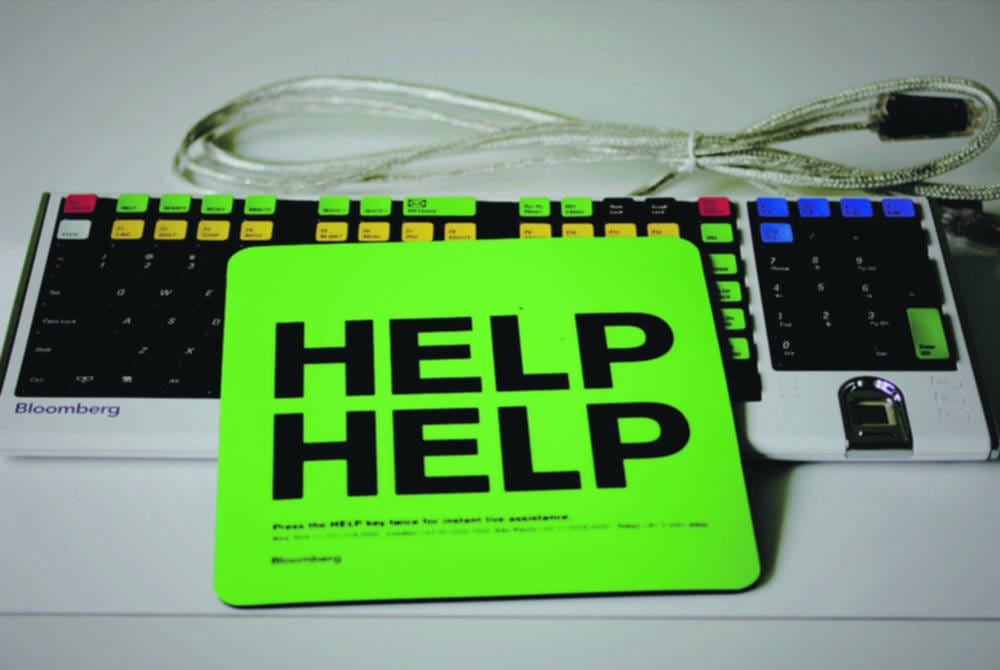The brand spanking new Bloomberg Assessment Test
A complete rip-off or a shortcut to your dream job?

The other day, you might have received an email from the Careers Advisory Service informing you that Imperial is one of the lucky universities selected to test-drive a new Bloomberg Assessment Test (BAT) for free. “Hurry now! In the future, there will be a fee for taking this test,” it said. First thoughts: “What the …?” So employers now want students to pay for taking a recruitment test? What’s next? Paying for interviews? And why introduce a further barrier to entry for those from less well-off backgrounds? Felix caught up with Gerald Walker, Managing Director Europe at Bloomberg Ventures, to seek clarification.
Aptitude tests are nothing new; most graduate recruiters in the UK already use numerical and verbal reasoning tests provided by companies such as the SHL Group or Kenexa. However, Walker explained that the BAT is specifically designed to test skills and knowledge relevant to careers in the financial services sector. It’s a 3-hour, multiple-choice test consisting of 150 questions in 12 sections covering everything from numerical and verbal reasoning, through to ethics and specific areas of finance and economics. The questions are designed to be practical rather than theoretical. Candidates are given comprehensive feedback and can compare themselves against their peers from across the globe. Students from Imperial will be able to see how they rank compared to their peers from top universities in places like Singapore or the US. Comparisons are done by subject area, so that those who are not studying finance are not disadvantaged.
The test scores are also put into an anonymous database for employers, who will be able to sift through the records based on different criteria (e.g. test scores, language skills, degree subject) and express interest in candidates to whom they would like to be introduced.The candidate then receives an email along the lines of “Would you be interested in applying to Deutsche Bank?”. Bloomberg will charge employers a fee of approximately £60 per introduction, and this is where they are looking to derive the majority of revenue from this venture.
We reserve the right to charge in the future, but that is mostly to cover administration costs and to prevent people from signing up for the test and then not turning up Gerald Walker, Bloomberg Ventures
On the subject of charging students, Walker explained, “Of course, students are not brimming with cash these days, we know that. Right now the BAT is free, so students have nothing to lose, apart from spending 3 hours less down the pub. We reserve the right to charge in the future, but that is mostly to cover administration costs and to prevent people from signing up for the test and then not turning up.” The likely fee is going to be in the region of £30-60.
“Will students still be able to apply for a job at Bloomberg without taking this test?” we asked. “Yes, it’s entirely voluntary,” Walker reassured us. Although Bloomberg themselves will be using BAT for their recruitment, the test is being introduced more as a revenue-generating venture rather than solely for internal purposes. “It may well be that in the future, the BAT score will become something that people will want to advertise on their CVs,” Walker added.
On their website, Bloomberg claims that candidates will be able to advertise their BAT score to 20,000 companies through their database. At first glance, this seems like bragging. However, Bloomberg does have a vast client base within the financial industry, built up over the years through their existing service offerings. It is these companies that Bloomberg will reach out to. This will enable smaller employers (e.g. hedge funds) to tap into a global pool of talent more easily. Right now, these companies find it more difficult to do campus recruitment, as they don’t have easily recognisable brands. The BAT score will also enable bright students from less acclaimed universities to advertise their qualities to big employers who might at the moment be concentrating their campus recruitment efforts on a few top institutions. The BAT tests will be run on university campuses and Bloomberg is open-minded about the types of universities they approach; it’s not just for the elite. Of course, it is likely that success rates will be higher at top institutions.
What if you do badly on the test? Will 20,000 companies then think you are not employable? “Candidates will have complete control over their data. If they had a bad day, they can always retake the test, or they can have their score removed from the database, so they will not forever be stuck with a bad score,” Walker explained.
What does this all mean for students who are looking to bag themselves a well-paid City job? The brightest of the bright will welcome the simplification: take one test, reach many employers. The rest of us might feel a little intimidated about the prospect of being ranked and compared to thousands of graduates across the globe.









